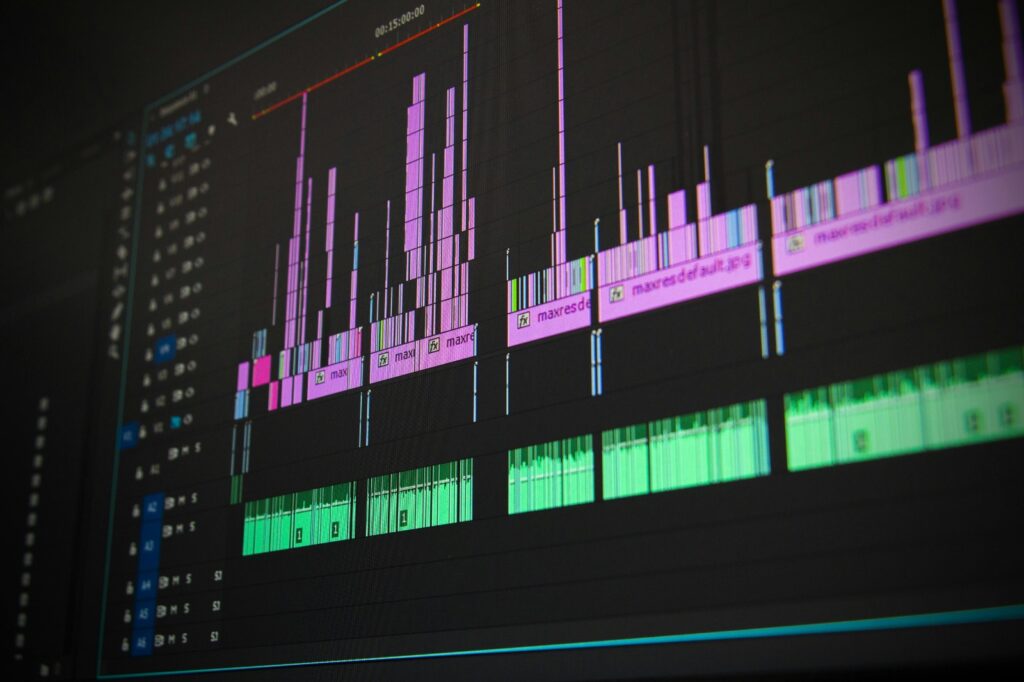The music business is a dynamic and constantly changing field where technology and creativity come together to create the sounds that influence cultures and feelings. The job of a music producer appeals to those who are enthusiastic about creating music since it combines technical know-how with artistic talent. Producing music involves more than simply modifying sounds; it also involves realizing an idea and arranging components to produce a cohesive work of art.
Contents
Mastering the Art of Sound Engineering
The core of music production is sound engineering, which requires a thorough grasp of sound’s artistic and technical aspects. In order to produce the required sound quality and effect, audio signals are altered utilizing a variety of tools and software. Tracks are recorded, edited, mixed, and mastered throughout this process; each step requires accuracy and acute attention to detail. To precisely capture and improve sound, a music producer has to be skilled with digital audio workstations (DAWs), microphones, and other recording equipment. Acoustics and sound physics are also included in the technical knowledge of sound engineering. This information is essential for configuring recording situations since it affects the audio’s clarity and quality. A music producer may make crisp, polished recordings—the foundation of every successful music project—by grasping these technical abilities.
Creating Memorable Melodies and Harmonies
A fascinating melody and harmony are the foundation of each excellent song. To write melodies that connect with listeners, music producers need to have a strong grasp of music theory. This entails understanding chords, progressions, and scales and how to mix them to elicit certain feelings. In order to produce rich, full-bodied music that draws in listeners, layers of various instruments and sounds are combined to create melodies and harmonies. Composing distinctive melodies is mostly dependent on the imagination of the music producer, even in addition to theory. Inspiration for this creative process comes from a variety of places, including past experiences, the natural world, and other artistic mediums.
Crafting the Perfect Drum Samples
Drum samples for music production are an essential component of music production since they provide a tune to its rhythmic basis. The process of carefully selecting and constructing the ideal percussion samples includes selecting sounds that go well with the song’s overall tone. Producers often begin by experimenting with a large collection of drum sounds, which includes both electronic drum machines and conventional acoustic kits. For each sample to integrate smoothly into the track, its attack, decay, and tone quality are carefully examined. A music producer’s work may be improved by adding a distinctive and personalized touch by creating bespoke drum samples. In this procedure, unique drum sounds are recorded, or pre-existing samples are altered utilizing a variety of processing and effects methods.
Digital audio workstations (DAWs), specialized software, are essential to the process of producing music. With the wide range of features and capabilities offered by these potent instruments, producers may compose, record, edit, mix, and master their music on a single platform. Every prospective music producer has to be familiar with well-known DAWs like FL Studio, Logic Pro, and Ableton Live. Producers need to dedicate time to being well-versed in the ins and outs of the DAW they have selected, since each one has a distinct interface and process. Music producers use a variety of plugins and virtual instruments in addition to DAWs to improve the quality of their recordings. There are many creative options available with these tools since they provide a large selection of sounds and effects that may be used in the song.
Understanding the Business Side of Music Production
While technical proficiency and inventiveness are crucial, knowing the financial side of music production is just as crucial. Understanding music rights, royalties, contracts, and distribution is necessary for this component. It is important for music producers to possess knowledge about safeguarding their intellectual property and guaranteeing fair compensation for their labor. This involves being aware of the several kinds of royalties—such as performance, mechanical, and sync royalties—as well as how they are collected and allocated. For one to succeed in the music production industry, marketing and promotion skills are just as important as legal and financial expertise. Producers need to be skilled at using social media, streaming services, and other marketing methods to promote their music and brand.
Conclusion
The path to becoming a music producer is complex and requires technical proficiency, artistic vision, and financial savvy. Adopting this course calls for commitment, lifelong study, and a love of making music that appeals to listeners everywhere. The road is worthwhile when a musical concept becomes a reality since it may lead to an interesting and rewarding profession in the dynamic field of music production.



